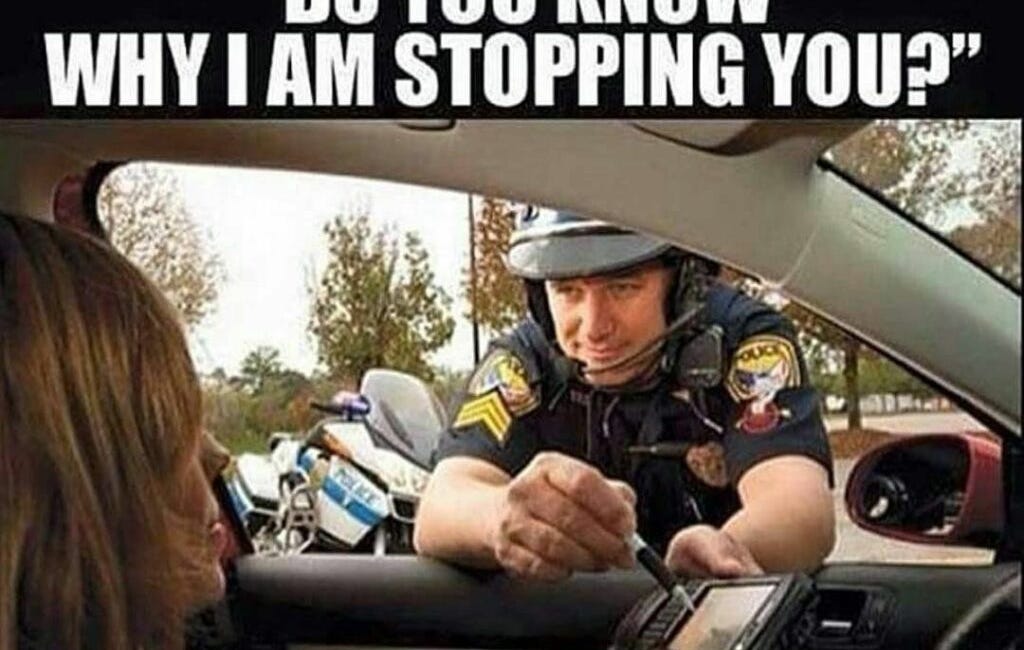Police Gaming Waze Could Lead to More Accidents:
A Case for Accountability
A 2022 news about Surrey police officers deliberately marking false locations on Waze raises serious concerns about public safety and accountability. While these officers might believe they're encouraging safer driving, their actions could have unintended and dangerous consequences.
The Dangerous "Boy Who Cried Wolf" Effect
When police deliberately spam Waze with false location markers, they're essentially creating a "boy who cried wolf" scenario. Users who repeatedly encounter these false reports will eventually learn to distrust the app entirely. This erodes the effectiveness of legitimate warnings about actual police presence or road hazards.
Consider what happens when drivers become desensitized to these warnings:
They may ignore genuine alerts about speed traps in high-risk areas
They might disregard warnings about accident scenes where police are directing traffic
Drivers could develop a general distrust of all safety warnings on navigation apps
Legal and Ethical Issues
These actions by Surrey police potentially violate several laws and ethical standards:
Misuse of Public Resources
Officers using on-duty time and equipment to manipulate a private application are misappropriating public resources. Taxpayers fund police to enforce laws, not to game navigation systems.
False Information Dissemination
In many jurisdictions, knowingly providing false information to the public can constitute misconduct. While the Surrey police jokingly claim they're "technically" at those locations "at that specific point in time," they're clearly violating the spirit of the app's purpose.
Breach of Trust
Police officers have a duty to maintain public trust. Deliberately deceiving the public—even with supposedly good intentions—undermines this trust.
Real-World Consequences
The potential for increased accidents stems from several factors:
Distracted Driving: Drivers checking Waze more frequently to verify police reports are taking their eyes off the road
Sudden Braking: False alerts cause unnecessary sudden braking and speed changes, which can lead to rear-end collisions
Alert Fatigue: As users become desensitized to warnings, they may ignore legitimate hazard alerts
In one documented case in the United States, a driver who had encountered numerous false police reports on Waze failed to slow down for an actual accident scene, resulting in a secondary collision.
Better Alternatives
If police genuinely want to reduce speeding, they have legitimate tools at their disposal:
Actual visible presence in high-risk areas
Speed indicator displays that show drivers their current speed
Properly announced speed enforcement campaigns
Investment in road design that naturally encourages appropriate speeds
The Need for Accountability
When police admit to deliberately providing false information to the public—even joking about it on social media—they should be held accountable. Department leadership should establish clear policies against manipulating navigation apps and enforce these standards.
The Surrey police department's social media announcement demonstrates a concerning lack of awareness about the potential consequences of their actions. Rather than bragging about gaming the system, they should be focusing on legitimate, transparent enforcement methods.
As technology continues to evolve, the intersection between law enforcement and navigation apps requires clear ethical guidelines. Police officers should be using technology to enhance public safety, not undermining it through deception.
What do you think about this practice? Should police be allowed to manipulate navigation apps, or should there be clear boundaries?
https://www.theregister.com/2022/09/01/surrey_police_waze_traffic/
From Wikipedia, the free encyclopedia
This article is about the GPS navigation software. For the Skepta, Chip and Young Adz song, see Waze (song). For the Tierra Whack song, see Whack World.
Waze Mobile Ltd
Developer(s)GoogleInitial release2006; 19 years ago (as FreeMap Israel)Available in50 languages[1]TypeSatellite navigation softwareLicense
Websitewaze.com
Waze Mobile Ltd,[2] (/weɪz/; Hebrew: ווייז מובייל בע"מ) doing business as Waze (Hebrew: ווייז), formerly FreeMap Israel, is a subsidiary company of Google that provides satellite navigation software on smartphones and other computers that support the Global Positioning System (GPS). In addition to turn-by-turn navigation, it incorporates user-submitted travel times and route details while downloading location-dependent information over a cellular network. Waze describes its application as a community-driven initiative that is free to download and use.
The software was originally developed in Israel by Waze Mobile, a company founded by Israeli entrepreneurs Ehud Shabtai, Amir Shinar, and Uri Levine, veterans of the Israeli intelligence unit 8200.[3][4] Funding for the initial project was provided by two Israeli venture capital firms, Magma and Vertex Ventures Israel, as well as by an early-stage American venture capital firm, Bluerun Ventures. In June 2013, Waze Mobile was acquired by Google for US$1.3 billion.[5][6][7]
The application generates revenue through hyperlocal advertising to an estimated 130 million users.[8]
Your Car Can Keep Collecting Your Data After a Judge Dismissed a Privacy Lawsuit
The method used to intercept text messages and call logs in the context of the lawsuits against automakers appears to be through the vehicles' infotainment systems.
#Cops Are Buying Your #SocialMedia #LocationData Without A #Warrant, Here’s How To Stop Them.
https://futurism.com/cops-buying-social-media-location-data-without-warrant/
GPS Trackers on Activists Car
GPS Trackers on Activists Car - On Monday August 1st, Michigan activist Peatmoss found 2 GPS tracking devises attached with powerful magnets to the rear axle of their car, see pictures here. This happened after Peatmoss spent a week hanging out with friends at the
#USA #COPS are trained #DomesticTERRORISTS – #AbolishThePolice #DefundThePolice
David Grossman trains more cops than anyone else








